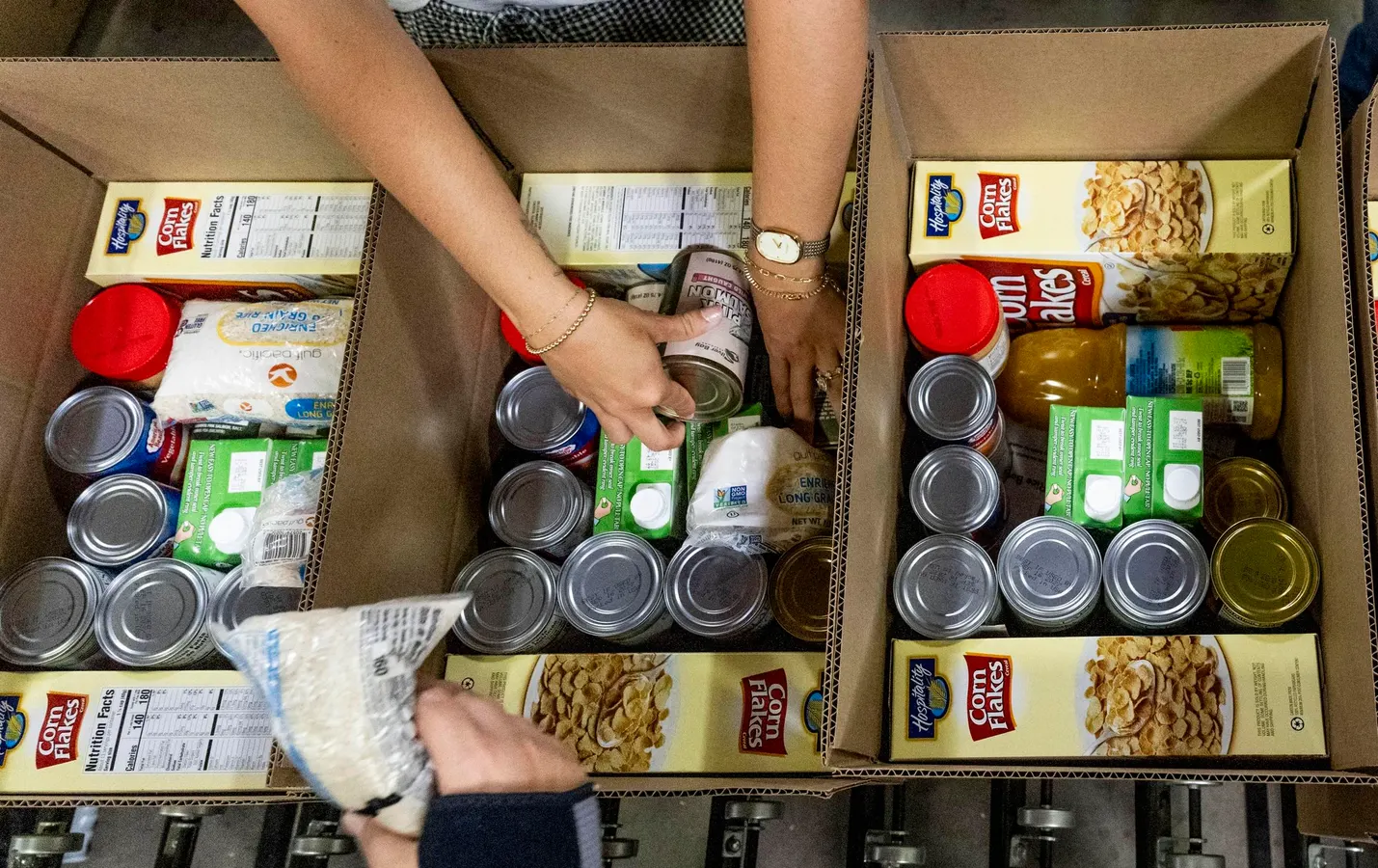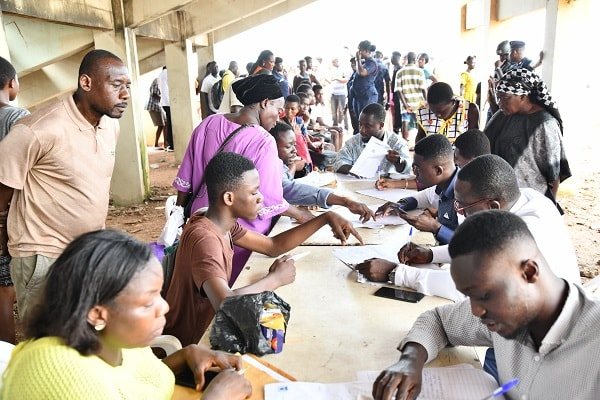Copyright forbes

GARDEN GROVE, CA - May 09: Workers pack boxes for the Commodity Supplemental Food Program at The Orange County Food Bank in Garden Grove, CA on Friday, May 9, 2025. MediaNews Group via Getty Images The looming SNAP funding lapse arising from the ongoing U.S. government shutdown could have dire consequences for millions of disabled Americans, plunging them into food poverty in November, the CEO of Easterseals, a major nationwide disability non-profit, has warned. SNAP, which is a program that has been around since the mid-sixties when it was established by President Lyndon B. Johnson, stands for Supplemental Nutrition Assistance Program. SNAP is a means-tested benefit administered by states but funded by the federal government through which eligible participants receive a designated electronic payment card, which can only be used to purchase groceries, and is topped up monthly. With a total outlay of $99.8 billion last year, averaging around $187 per person, SNAP assists around one in eight Americans annually, of which 20% are thought to be elderly and 10% are nonelderly persons with a disability. Also known as food stamps, some 39% of recipients are children. All in all, the program represents the most significant bulwark against food insecurity nationwide. Political deadlock The current SNAP funding lapse has emerged from the widely publicized U.S government shutdown, which has been ongoing since October 1, with Republicans and Democrats deadlocked on passing a bill to fund government services past this date. With no agreement in sight on important matters such as health insurance tax credits, and a reversal of President Donald Trump’s cuts to Medicaid, both sides continue to make political capital out of the crisis by blaming the other. The SNAP program maintained sufficient funding to get through the initial four weeks of the shutdown, but the Trump administration has stated that this will dry up by November 1. This benefit lapse would represent the first of its kind in the program’s history. MORE FOR YOU On the ground, SNAP-enrolled individuals have been making difficult budgeting decisions while visiting food banks and other aid organizations. Meanwhile, within Capitol Hill’s ivory towers and walled gardens, the latest chapter of the SNAP impasse appears to revolve around whether the U.S. Department of Agriculture should tap into a $6 billion contingency fund, with the Democrats claiming it can and should, but the agency maintains that the fund is reserved solely for emergencies such as natural disasters. Commenting on the impending crisis, Kendra Davenport, CEO of non-profit Easterseals, which supports children and adults with disabilities across the U.S. through public education, policy and advocacy, said during an interview, “When SNAP benefits lapse, the impact is immediate and far-reaching. Families lose stability overnight — it’s groceries today, but tomorrow it’s missed medications, lost work hours and mounting health crises. For people with disabilities and older adults already living on the edge, these disruptions are devastating.” She further added, “We can’t afford to treat food security as a political bargaining chip. Congress must ensure programs like SNAP are funded consistently and predictably, so families aren’t forced into crisis every time there’s gridlock in Washington. What’s needed now is bipartisan commitment to keeping the essentials running — food, care, and stability for the people who make this country work.” Difficult choices Across the country, state authorities are doing what they can to plan for the November 1 cliff edge. Oregon and Virginia have issued declarations for the release of emergency funds for food assistance. Minnesota Democratic Governor Tim Walz announced $4 million in funding to this end. Meanwhile, New York Governor Kathy Hochul declared a state of emergency to release $65 million in assistance for food banks. New York State usually receives around $650 million in federal funding for SNAP benefits. In neighbouring New Jersey, Brian Fitzgerald, President/CEO of the Easterseals division there, said, “New Jersey has worked hard to protect families from hunger, but the ongoing federal shutdown puts that progress at risk. “If federal SNAP benefits lapse after October 31, thousands of New Jerseyans — including the people Easterseals supports in our residential and day programs — could lose access to the food and nutrition they depend on. Food security is not a privilege; it’s the foundation for health, stability and independence.” This is a notion shared by Joy Bhosai, MD, MPH, a physician and public health innovator with over 15 years of experience at the intersection of healthcare, technology and AI. She is the Founder and CEO of Pluto Health, an AI-powered platform that bridges clinical care and research to close gaps in access to high-quality care. “As we head toward November 1, millions of Americans are bracing for the loss of SNAP benefits. While decisions between food and access to medicine are tough to make, these are inherently intertwined,” Bhosai says. “When communities have better access to food, studies have time and time again demonstrated that this can lead to lower cost of care. When we keep people healthy, the return on investment is high as costs are contained. As a doctor and mother, these are tough decisions for families to make. I’ve seen patients with diabetes decide between purchasing healthy meals and then needing to ration insulin with their family members. This inevitably leads to costly hospitalizations and severe economic consequences for hospitals and their insurance. We need holistic approaches to address health, not be forced to pick between the two.” Vulnerable households, including those with one or more members of the disability community, are readying themselves to make difficult choices in the weeks to come. It is hoped that the power brokers on Capitol Hill will make an easier one and prioritize what matters most here and help families keep food on the table. Editorial StandardsReprints & Permissions



